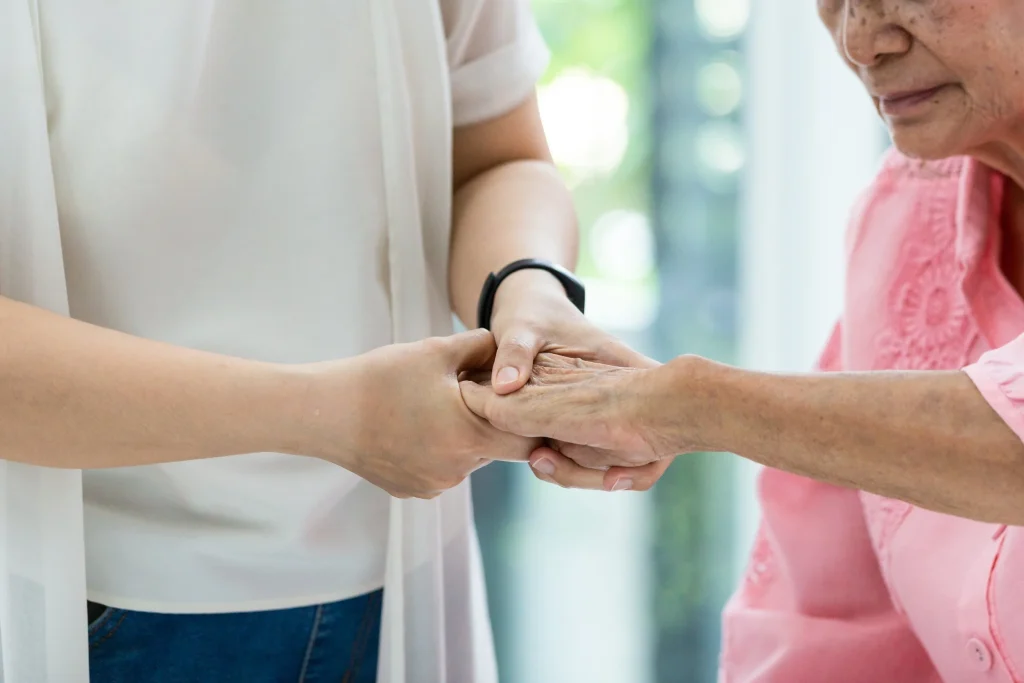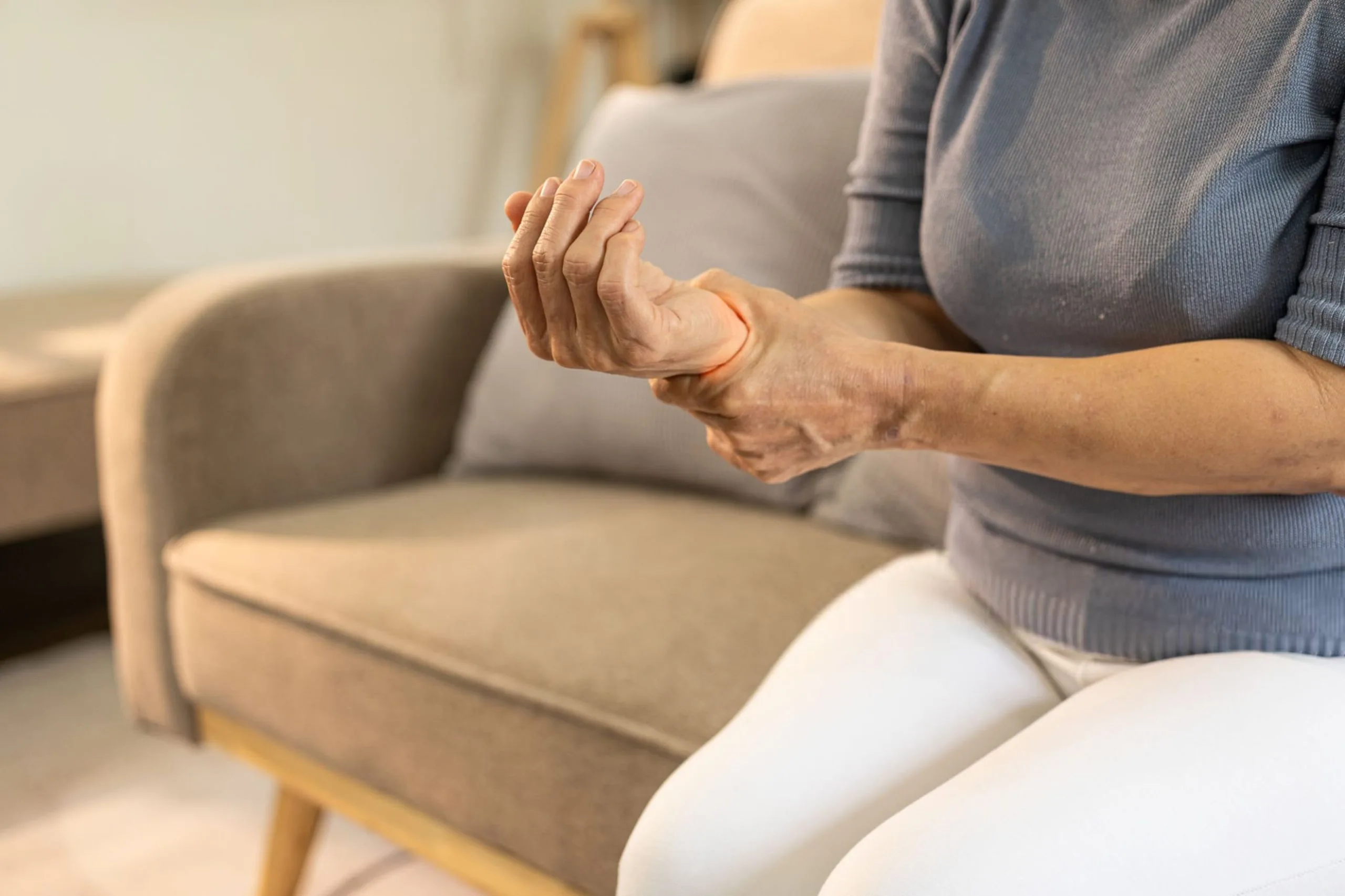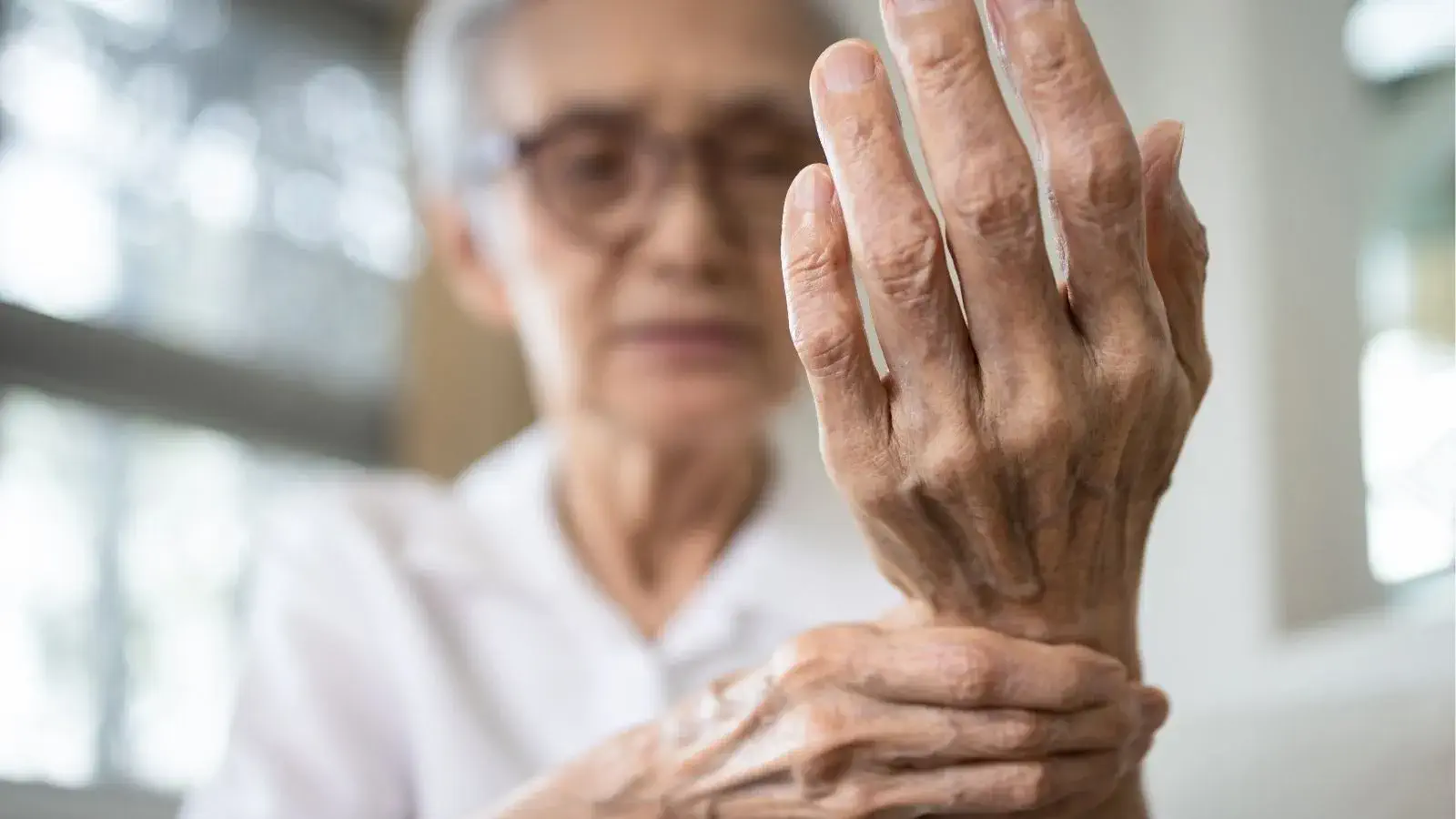
Neuropathy in the Elderly + Symptoms and Treatment
Have you ever heard of neuropathy in the elderly? Neuro means neuron or nerve and pathy means damage. Neuropathy occurs when the nerve fibers of the body are damaged for various reasons. This disease causes problems for the affected person and sometimes causes the elderly to withdraw from society. The clinical symptoms of the disease in the elderly are different and not all patients have similar symptoms, because the nerve involvement in them may vary.
In fact, neuropathy is a disease of the peripheral nerves; the nerves that enter the spinal cord and brain (including the brainstem itself) or exit them. We call the nerves that enter sensory and those that exit motor. If each of these is damaged alone or together, they can cause disorders in the patient’s sensation and movement. One cause of loss of balance in elderly can be neuropathy. To learn more about this disease, keep reading this article on humanhealthmag, so that we can tell you, how to control this problem.
Causes of Neuropathy
What causes neuropathy in the elderly? It occurs for various reasons, the most important of which are metabolic diseases, the leader of which is diabetes. Other diseases that cause this disease include hypothyroidism, rheumatic and vascular diseases, and anemia, especially in old age. Some viruses can also cause neuropathy of the elderly. One of these dangerous viruses is shingles. Another type is a syndrome called Guillain-Barré syndrome. The cause of this disease is not yet known, but it usually appears after catching the flu and a cold.
In Guillain-Barré syndrome, the immune system mistakenly attacks the body’s nerves and damages them. Of course, chemicals such as chemotherapy drugs and some cancer drugs are involved in the development of this disease, but with all the facilities and knowledge in medicine, in some cases, the appropriate answer to the cause of the disease cannot be provided.

Symptoms of Neuropathy in the Elderly
Neuropathy in the elderly vary and depend on the type of nerve involved. If the motor nerves are involved in the elderly, the patient will no longer be able to perform their motor actions; that is, the muscle strength decreases and causes the patient to have difficulty walking or cannot pick up something with his hand and sometimes cannot even move his hand. Disorders of the sensory nerves lead to a decrease in the sense of touch and the patient presents with complaints such as tingling or numbness in the hands and feet, and sometimes the numbness is so severe that he does not notice the burning of the foot. This condition is often seen in diabetic patients.
Disorders of the autonomic nerves will cause problems in the functioning of the heart, bladder and digestive system. When the doctor examines the patient, the strength of the extremities is weak and the patient cannot easily press the doctor’s finger. At this time, a test is performed that shows that the reflexes of the retrograde reflexes have decreased or disappeared. In cases where sensory nerves are involved in the elderly, a sensory test is performed. In this method, the doctor gently presses a needle on the patient’s hand or foot to observe the level of sensation. In these patients, there is no reaction to the touch of a sharp object.
Types of Neuropathy
In this section, we describe the types of neuropathy in the elderly and explain how to treat each one.
- Visceral problems: In visceral problems, the patient is examined and diagnosed by taking a history and there is no specific test for it. These patients usually suffer from constipation, diarrhea, difficulty swallowing, urinary incontinence or retention, abnormal sweating, a feeling of fullness or anorexia in the elderly, and fluctuations in blood pressure. These disorders are due to the involvement of the body’s automatic or autonomic nerves.
- Focal neuropathy: Symptoms of focal neuropathy occur suddenly and may occur with decreased vision, double vision, decreased hearing, or unilateral numbness in the elderly. If a nerve is affected, it is called mononeuropathy, and if two or more nerves are affected, it is called polyneuropathy. In diabetic patients, most often the involvement is mononeuropathy, in which the seventh nerve is damaged.

- Peripheral neuropathy: This neuropathy can lead to loss of sensation in the feet.
- Symmetric peripheral neuropathy: This is the most common type of diabetic neuropathy and can affect the hands and feet.
- Autonomic neuropathy: This type of neuropathy affects involuntary body functions such as digestion and urination, and causes symptoms such as stomach pain, nausea, indigestion, and headaches.
- Proximal neuropathy: Damages specific nerve branches, such as those in the legs or chest, leading to pain in these areas.
- Mononeuropathy: This type of neuropathy can affect all of a person’s nerves.
Treatment of Neuropathy in the Elderly
Treatment of neuropathy in the elderly depends on the cause of the disease. In Guillain-Barré syndrome, which occurs following an infectious disease, if the disease is very severe, blood can be purified or antibodies can be injected or other adjuvant drugs can be used to control the disease. In other cases, such as rheumatic diseases, anemia and scoliosis, the patient’s symptoms disappear with appropriate and timely treatment, and in carpal tunnel syndrome or accidents that have led to nerve damage, surgery is necessary.
Some patients struggle with severe pain. Guillain-Barré syndrome is severe pain. We also see this pain in diabetics. Sometimes, cervical or lumbar disc displacement also causes neuropathy, which causes extremely terrible and unbearable pain for the patient, especially in the elderly. In these cases, appropriate treatment should be carried out as soon as possible through surgery or appropriate drug treatment such as prescribing painkillers. Physiotherapy is very beneficial for patients and the elderly who suffer from Guillain-Barré syndrome, diabetes, or slipped discs. Physiotherapy helps repair nerves and restore muscles that have atrophied due to inactivity to their normal, original state.
Is it Possible to Prevent Neuropathy in Older Adults?
You’ve probably heard the old adage, “Prevention is better than cure!” Neuropathy in the elderly is no exception, and there are some things you can do to prevent neuropathy, including:
- Talk to your doctor about your genetic risk and what you can do to prevent the onset of hereditary neuropathy.
- Research medications that lower your risk of neuropathy.
- Get vaccinated against diseases like shingles that can cause neuropathy.
- Treat the underlying cause of neuropathy (for example, manage your blood sugar if you have diabetes).

- If you smoke, quit to promote healthy circulation.
- Avoid caffeine to improve sleep.
- A healthy diet is especially important to prevent vitamin deficiencies and maintain healthy blood vessels. Following a balanced diet that includes all the food groups is the best way.
- If you have diabetes, take care of your feet. Wash and examine your feet daily, and keep the skin moisturized with lotion.
Concluding Remarks
In this article, we talked about neuropathy in the elderly. In general, any patient who has impaired movement of the arms and legs or numbness in a part of their body should see a neurologist. The sooner treatment is started, the worse the neuropathy in patients will be prevented. During the patient’s visit, a type of test called ENG is performed, in which the speed of nerve conduction is measured and the nerve involved is identified.
Fortunately, neuropathy is treatable. In cases where genetics and inheritance are involved in the development of the disease, the disease can also be controlled or, with the necessary training, the patient can be made to suffer less damage. This disease is more common in diabetics and most patients are not aware of it. All patients who have numbness in their feet should be careful. If a diabetic patient suffers a burn or scratch in their foot, it may lead to amputation of the patient’s limb.
We’re curious to hear your thoughts! What’s your take on this topic? Comment below and join the conversation; your opinion could spark new ideas!

Frequently Asked Questions
Is Neuropathy Painful in Middle-Aged People?
Yes. You need to know that some people with neuropathy endure a lot of pain. For example, Guillain-Barré syndrome is one type of neuropathy that causes a lot of pain.
How Does a Doctor Diagnose Neuropathy in Middle-Aged People?
By visiting a doctor, he or she will perform the necessary physical examinations and, by taking some tests, find out that middle-aged people have neuropathy.
What Are the Symptoms of Focal Neuropathy?
Focal neuropathy is a type of neuropathy whose symptoms begin suddenly and include blurred vision, hearing loss.
When Should Seniors See a Doctor for Neuropathy Treatment?
If there are changes in digestion, urination or sexual function, dizziness and fainting, a cut or wound on the foot that has become infected.
